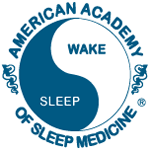 Early results from a new study in JAMA show that it may not be smart to take modafinil as a “brain booster.” The drug may have a greater risk of addiction than it was first thought to have.
Early results from a new study in JAMA show that it may not be smart to take modafinil as a “brain booster.” The drug may have a greater risk of addiction than it was first thought to have.The small pilot study involved 10 healthy men. Taking modafinil increased the dopamine in their brains. Dopamine is a neurotransmitter that plays a major role in addiction.
The brand name for modafinil is Provigil. It was approved by the FDA in 1998. It is a safe and effective treatment for three sleep disorders. It improves alertness in people who have excessive daytime sleepiness from narcolepsy or shift work disorder.
Modafinil also is approved for people with sleep apnea. Some people remain sleepy during the day even while treating their sleep apnea with CPAP therapy. These people may benefit from taking modafinil along with using CPAP.
But USA Today reports that there is concern that many other healthy people are taking modafinil as a “smart drug.” Students hope it will improve their performance on an exam. Professionals may take it hoping to stay sharp on a long business trip.
Doctors can prescribe the drug for “off-label” use. Or people may buy it over the Internet.
An article in The Times of London shows that this trend is not isolated to the U.S. The New York Times also has reported on the debate in academic circles over the ethics of taking smart drugs.
In 2008 a scientific review analyzed all of the modafinil research. It reports that modafinil can improve mood, fatigue, sleepiness and cognition in sleep-deprived people. The benefit is similar to that of caffeine. But the effect may last longer.
One of the most recent studies was published in the February issue of the journal Sleep. After 44 hours awake each participant was given modafinil, caffeine or dextroamphetamine.
Each stimulant provided a cognitive boost. But the advantages differed according to the type of task being tested.
But does modafinil give healthy people who are not sleep deprived a cognitive edge? The 2008 review states that this evidence is “controversial.”
In November another journal article indicated that there is little evidence to support the use of drugs to improve learning and memory. It reports that, “So far, all clinical trials of neuroenhancing drugs have either failed or demonstrated only very limited efficacy.”
Dr. Nora Volkow agrees. She is the director of the National Institute on Drug Abuse and the lead author of the JAMA study.
"It would be wonderful if one could take a drug and be smarter, faster or have more energy," Volkow told the AP. "But that is like fairy tales. We currently have nothing that has those benefits without side effects."
Possible side effects of modafinil include headache, nausea, anxiety and sleep problems. It also can cause a skin rash or other allergic reaction.
Of course one of the best ways to give your brain a boost is to get more sleep. You don’t need to take a pill, and the only cost is your time. It may be the smartest choice of all.







No comments:
Post a Comment